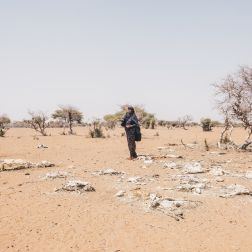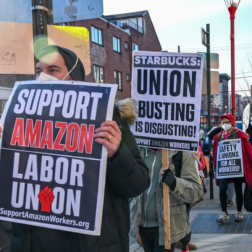- 5 mins read time
- Published: 25th January 2018
The top 4 questions you asked about the new Oxfam inequality report

Our new report about the state of inequality in the world reveals how our economy is delivering unimaginable rewards for those at the top, while tens of millions of people are still in poverty.
As soon as we published it, we started to receive lots of great comments and questions. Here are some of the most interesting questions we’ve been asked, and our answers to them.
-
“Poverty is going down globally. People are living longer, healthier lives. Why should we care if a few people are also getting really rich?”
It’s absolutely true – and absolutely brilliant – that extreme poverty has declined very significantly over the past 25 years. In fact, the number of people living in extreme poverty – which is defined as anyone living on less than $1.90 a day – has more than halved. However, that doesn’t mean we can now put our feet up, or even carry on along the same path that we’ve been going down.
Over this same time period, inequality has been increasing within most countries, and is now at dangerously high levels. There’s a great deal of evidence to show that extreme inequality leads to very negative social, political and economic impacts and stands in the way of the fight against poverty globally. The majority of extreme poverty is now in middle-income countries.
The rise of extreme economic inequality is also a serious blow to the fight against gender inequality. Women feel the impact of inequality, and are more likely to live in poverty than men.
-
“Oxfam is a charity – why are you talking about politics?”
Ending poverty is Oxfam’s reason for being – but we know that we can’t achieve our goal unless we work with others to tackle the structural issues that push people into poverty and keep them trapped there. This means addressing really big challenges such as economic inequality, gender discrimination and climate change. And these problems are all fundamentally about power.
To understand their causes and to find solutions, we have to look at who has been making the big decisions, whose interests they have been acting in and whose voices have been excluded. In particular, women’s voices and the perspective of women need to be heard, and acted on. We also have to look at who has the responsibility and the ability to put things right – and very often that means challenging governments to make better decisions.
-
“Oxfam keeps criticizing big companies. Are you anti-business?”
We’ve been asked this a few times over the years, but it simply isn’t true. Much of Oxfam’s work involves actively supporting and developing enterprises in communities around the world. We have productive partnerships with many companies, large and small.
What we are against is the kind of business model that maximizes profits by paying poverty wages, endangering workers, trashing the planet, or aggressively dodging tax. We are happy to be seen as anti those kinds of business.
We want to see companies showing that there is a different way of doing business – that profit is not the only thing that matters to them. We want to see governments regulating against bad business practices, and actively supporting more positive ones.
-
“Oxfam talks as though the economic pie cannot grow, and so it’s just a question of sharing that pie out more equally. But that’s obviously not true. If the economy grows, there will be more for everyone. And billionaires are the real wealth creators, driving that economic growth, so why shouldn’t they be rewarded for that?”
Of course, economic growth can bring benefits with it – but at the moment, we see that those benefits are mostly going to those at the top. 82% of the wealth created in the world last year went to the top 1%. We need both governments and businesses to take action to ensure growth benefits everyone – and particularly those at the bottom, of which women make up the largest percentage. Across the world, women consistently earn less than men and are usually in the lowest paid and least secure forms of work.
While inclusive economic growth is going to play a really important role in ending poverty in many countries, we also know that we have to tackle inequality at the same time, or we’ll destroy the planet that we all depend upon. With current levels of inequality, our global economy would need to grow 175 times bigger before everyone was able to earn $5 a day. That’s obviously completely unsustainable. We have to find a different and better route to shared prosperity.
We are asking people to help spread the word and to join the movement to fight inequality and beat poverty.




